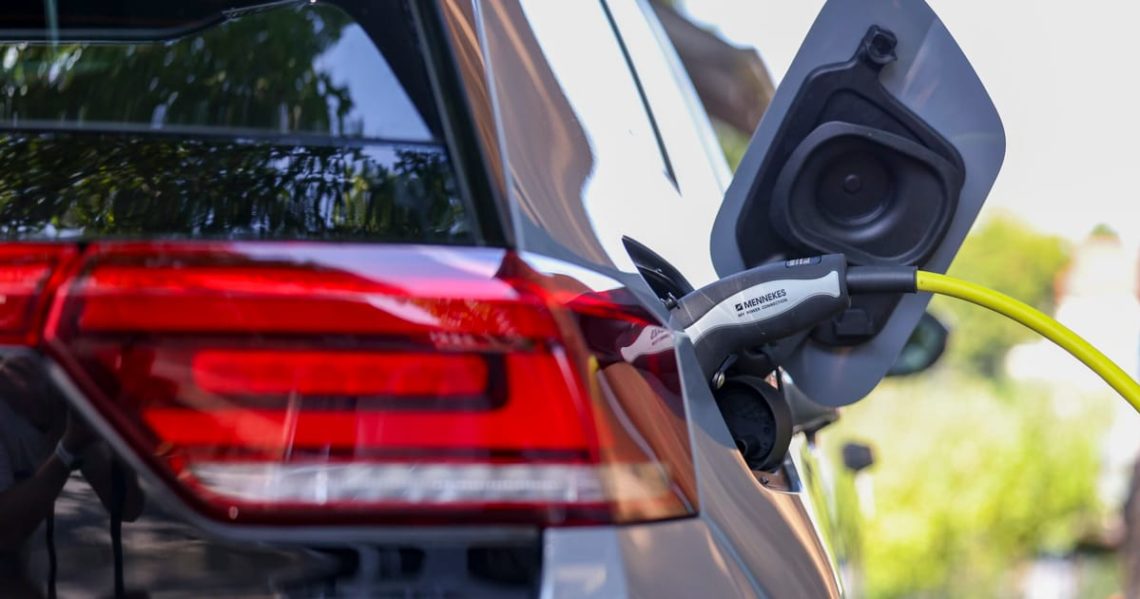Brussels wants to kill off the combustion engine. Instead, it’s supercharging Europe’s populists.
Right-wing parties are running hard against the EU’s law that bans the sale of new gasoline and diesel cars from 2035. It’s happening in the Czech Republic, Italy, Germany, France, Poland and elsewhere. In response, centrist parties with a more established voice in Brussels are turning against the law to avoid losing traction to their far-right rivals.
It’s far from the only issue for populist parties — most of which base a large part of their appeal on battling immigration — but the EU’s green car effort is one that speaks to many voters angry about Brussels threatening to take away their beloved combustion engine cars.
In Prague, the far-right Motorist for Themselves party denounced “green fanatics” and made a breakthrough in the national election last month with almost 7 percent of the vote.
The vote-winner populist ANO party on Monday struck a coalition agreement with the Motorists and the far-right Freedom and Direct Democracy. That means the Czech Republic, which has one of the EU’s largest car industries as a percentage of the economy, will continue being one of the leading opponents of the 2035 measure, as the outgoing centrist government was also skeptical of the law.
In Poland, Piotr Müller, a member of the European Parliament with the main opposition group, the nationalist Law and Justice party, said: “No one should be forced to change their car just because that’s what Brussels has decided.”
“Stop the climate fanatics!” screams a poster from Poland’s fast-rising far-right Confederation party. Meanwhile, a party policy paper states, “We are dealing with an anti-car frenzy that has taken hold of Eurocrats, and the war against the automotive industry and drivers is raging on many fronts.”
In Italy, League leader and Deputy Prime Minister Matteo Salvini denounced the 2035 measure as “ideological fundamentalism” and called it economic suicide that will hand over the bloc’s car industry to Chinese rivals. The Italian government is pressing hard for opt-outs from the 2035 biofuels law.
Germany’s far-right Alternative for Germany party campaigns strongly against 2035, but in the country with the continent’s largest car sector, the issue is also splitting the ruling coalition led by the conservative Christian Democrats in alliance with the center-left Social Democrats.
In France, Jordan Bardella, one of the leaders of the National Rally party, wants to repeal 2035.
Political target
The populists have hit on a pain point for the EU. Although the bloc wants to slash greenhouse gas emissions from transport by 90 percent by 2050, that means upending one of the continent’s most powerful — and lucrative — industries and imposing a new technology on a reluctant public.
The combustion engine ban was the most unpopular policy among consumers, even as they expressed broader support for climate action, according to a survey of 15,000 people in Germany, France and Poland that focused on climate policy attitudes in the runup to the 2024 European election.
The far-right is capitalizing on this skepticism, “turning it into political gains or framing climate policies altogether as overly burdensome toward businesses, farmers or ordinary citizens,” said Jannik Jansen, a senior policy fellow at the Jacques Delors Centre, who helped conduct the study.
The automotive sector is facing a triple whammy of crises: tariffs from Donald Trump, threats from tech-savvy Chinese rivals and a car market that failed to bounce back after the pandemic.
To hear some parts of the industry tell it — especially those carmakers lagging on switching to electric vehicles — the solution is to back off the EU’s climate agenda and severely weaken the 2035 ban, if not overturn it entirely.
Pushing Brussels to the right
They’re gaining political supporters as this Commission shifts its priorities from leading on climate to making Europe strategically autonomous and regaining its competitive edge.
Germany’s Christian Democrats campaigned in February’s federal election on overturning the 2035 ban — and were rewarded at the ballot box, as was their sister party, the European People’s Party, which won the most seats in last year’s European Parliament.
Rising skepticism from voters at home is giving center-right politicians license to push back against green efforts in Brussels. Europe’s mainstream parties “have become significantly more hesitant or reluctant to support ambitious climate policies,” said Jansen.
Once one of the staunchest supporters of the 2035 law, France has backed off its earlier full-throated endorsement of the legislation. Now it wants assurances that the shift to battery-powered cars won’t cost jobs.
President Emmanuel Macron is hanging on to power by the thinnest of threads, and the National Rally of Bardella and Marine Le Pen is way out in front in opinion polls.
Paris “wishes to pursue the electrification of vehicles … as long as they are accompanied by very clear measures encouraging European preference that support industrial jobs in Europe,” the government said on Oct. 23.
National impacts
In Germany, the ruling coalition squabbled over the issue before the Social Democrats gave way and modified their position. They will now accept non-EV ways of meeting the 2035 law by using range extenders — small combustion engines that give electric cars more range — or plug-in hybrids, so long as green steel or e-fuels are used to offset the emissions.
But that’s not enough for the Christian Social Union of Bavaria, with premier Markus Söder refusing to budge on the issue.
“The EU’s 2035 ban endangers hundreds of thousands of jobs,” Söder said, warning of the looming “collapse” of Germany’s car industry.
“Söder’s current stance fits neatly into his broader, opportunistic strategy of adopting far-right populist talking points and instrumentalizing ‘culture-war’ narratives, particularly against the Greens and what he frames as regulatory overreach,” said Jansen.
Other countries are getting in line. Poland’s centrist government is content to follow in Germany’s wake.
“We’re happy that Germany is speaking with a Polish voice,” said Andrzej Halicki, a member of the European Parliament from Prime Minister Donald Tusk’s Civic Platform party.
The Commission is responding to the pushback, with President Ursula von der Leyen set to put forward a proposal by the end of the year to reform the 2035 legislation. And the executive is clear about where it lays the blame for a slower-than-anticipated transition to electric vehicles.
“The main reason Europe isn’t catching up is because the far-right discredited EVs to the middle class,” an official said.
This article has been updated.
The post EU’s green car push helps fuel political populists appeared first on Politico.




